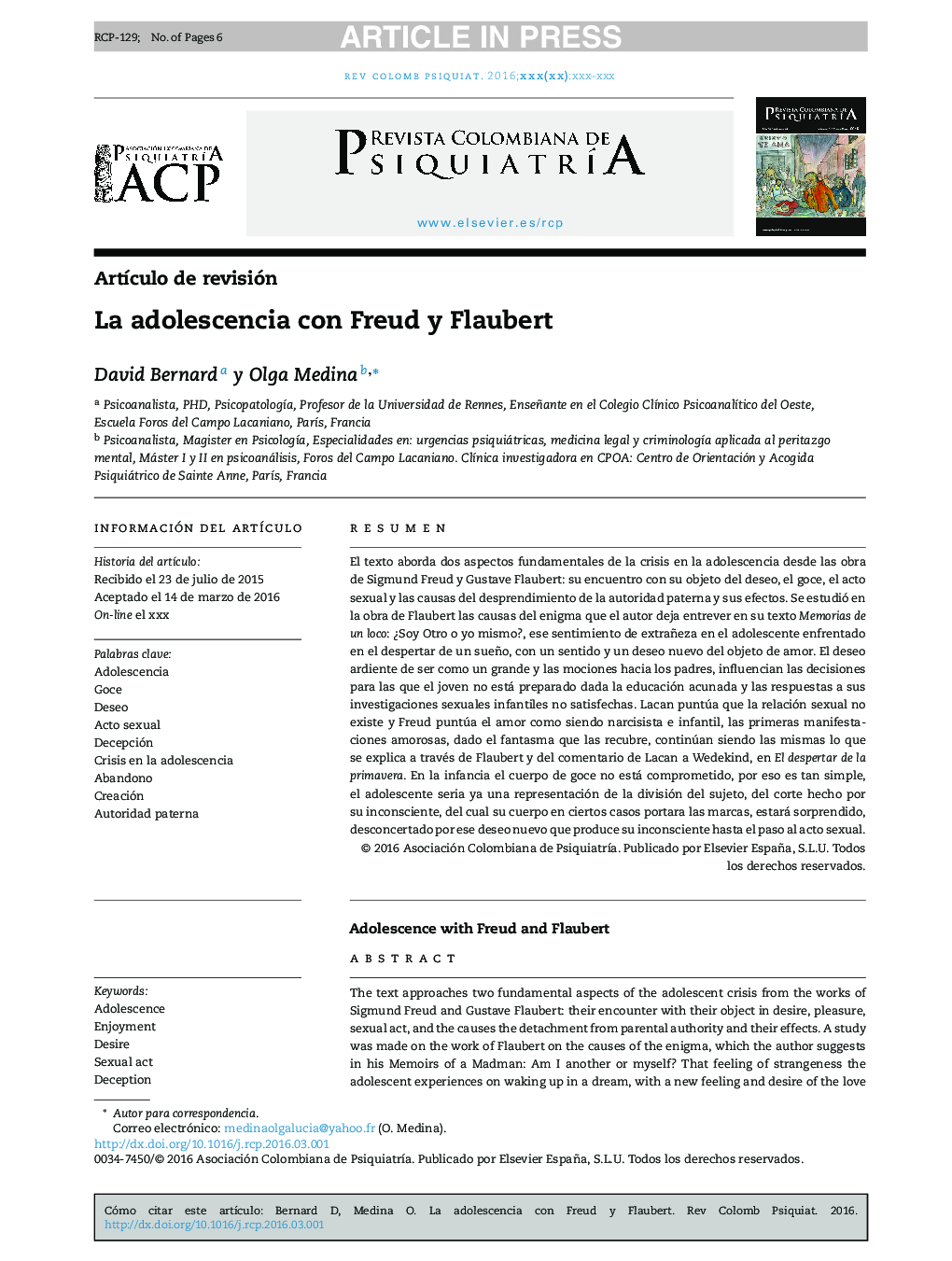| Article ID | Journal | Published Year | Pages | File Type |
|---|---|---|---|---|
| 8816215 | Revista Colombiana de Psiquiatría | 2018 | 6 Pages |
Abstract
The text approaches two fundamental aspects of the adolescent crisis from the works of Sigmund Freud and Gustave Flaubert: their encounter with their object in desire, pleasure, sexual act, and the causes the detachment from parental authority and their effects. A study was made on the work of Flaubert on the causes of the enigma, which the author suggests in his Memoirs of a Madman: Am I another or myself? That feeling of strangeness the adolescent experiences on waking up in a dream, with a new feeling and desire of the love object. The ardent desire of being like a grown-up, and the motions toward their parents, influence decisions for which the young are not prepared, given their cradled education and the unsatisfactory answers to their infant sexual investigation. Lacan notes that the sexual relationship does not exist. Freud rates love as being narcissistic and childish. The first amorous manifestations, given the fantasy that cloaks them always remain the same, as explained by Flaubert and Lacan's comment to Wedekind, in The Spring Awakening. In childhood the enjoyment of body is not involved. For this reason, it is so simple, the adolescent would be a representation of the division of the subject, the cut made by their unconscious, which their body, in certain cases, will carry the marks. They will be surprised, puzzled by this new desire that produces their unconscious to step toward the sexual act.
Related Topics
Health Sciences
Medicine and Dentistry
Psychiatry and Mental Health
Authors
David Bernard, Olga Medina,
